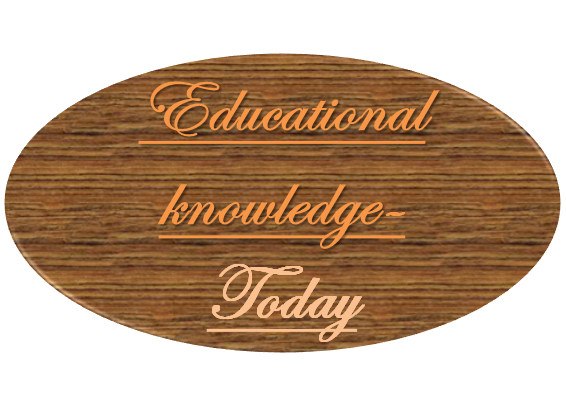MR khan
JOB INTERVIEW
A job interview is an interview consisting of a conversation between a job applicant and a representative of an employer which is conducted to assess whether the applicant should be hired. Interviews are one of the most popularly used devices for employee selection.
a formal meeting in which one or more persons question, consult, or evaluate another person: a job interview. a meeting or conversation in which a writer or reporter asks questions of one or more persons from whom material is sought for a newspaper story, television broadcast, etc
Interview tips
Review common interview questions.
Make a list of questions that you would like to ask during the interview.
Be prepared.
On the day of the interview, remember to:
Display confidence during the interview , but let the interviewer start the dialogue.
End the interview with a good impression.
Job interviews provide an opportunity for you and your potential employer to decide how well your skills align with the company's needs. Job interviews allow you to get better acquainted with prospective colleagues and obtain information to help you decide if that job is the right one for you.
NOTE - Resume for job purpose
LINKRESUME
most common job interview questions
What are your weaknesses?
Why should we hire you?
Why do you want to work here?
What are your goals?
Why did you leave (or why are you leaving) your job?
When were you most satisfied in your job?
What can you do for us that other candidates can't?
Example: “My greatest weakness is that I sometimes have a hard time letting go of a project. I'm the biggest critic of my work, and I can always find something that needs to be improved or changed. To help myself improve in this area, I give myself deadlines for revisions.
strengths include leadership, communication, or writing skills. Common weaknesses include a fear of public speaking, lack of experience with software or a program, or difficulty with taking criticism.
Interview Questions and Best Answers
Tell Me About Yourself.
Why Do You Want This Job?
Why Should We Hire You?
What Is Your Greatest Strength?
What Is Your Greatest Weakness?
Why Do You Want to Leave (or Have Left) Your Job?
What Are Your Salary Expectations?
How Do You Handle Stress and Pressure?
The interview process is a multi-stage process for hiring new employees. The interview process typically includes the following steps: writing a job description, posting a job, scheduling interviews, conducting preliminary interviews, conducting in-person interviews, following up with candidates and making a hire.
Stages of an Interview
1) Introductions. One of the most important steps in the interview process just so happens to be the first.
2) Small Talk. After introductions are finished, it is a good idea conduct a bit of small talk with the candidate.
3) Information Gathering.
4) Question/Answer.
5) Wrapping Up.
impress a hiring manager during an interview
Understand the culture.
Do your research on the interviewer.
Demonstrate relevant experience.
Be enthusiastic.
Show that you're easy to work with.
Be precise about why you want the job.
Ask thoughtful questions.
Talk to people at the company before the interview.
things to say at the beginning of your interview:
It's nice to meet you.
Thank you for meeting with me today.
I've read the job description.
I've researched your company.
I'd like to learn more about the company.
This job sounds interesting.
The job description aligns perfectly with my qualifications.
How to answer, “How would you describe yourself?”
I am passionate about my work.
I am ambitious and driven.
I am highly organized.
I'm a people-person.
I'm a natural leader.
I am results-oriented.
I am an excellent communicator.
Words to describe your work style:
The appropriate way to deal with stress is to make sure I have the correct balance between good stress and bad stress. I need good stress to stay motivated and productive. I react to situations, rather than to stress. That way, the situation is handled and doesn't become stressful.
4 Major Types of Interview You Should Be Prepared for
One-on-one interview. A one-on-one interview is the most common and widely used type of interview.
Panel interview. A panel interview is a type of interview which is conducted between the single candidate and a panel of interviewers.
Group interview.
Lunch interview.
Your skills
For example:
Good communication skills.
Critical thinking.
Working well in a team.
Self-motivation.
Being flexible.
Determination and persistence.
Being a quick learner.
Good time management.
Overall Career Goal Examples Could Include:
Improving your networking skills.
Switching careers.
Starting your own business.
Getting a promotion.
Becoming an expert in your field.
Assuming a leadership position.
Earning a degree or certificate.
Closing more sales.
Answering This Common Interview Question: “How Do You Handle Stress?”
Understand why the interviewer is asking the question.
Make a list of your soft skills.
Add context to these skills with a relevant, impactful example.
Focus on your positive actions, not your negative feelings.
Don't deny your stress.
Why you are Interested in this job ?
I'm interested in this job because I can see that, in this role, my skills could help solve this problem within your company. I also see an opportunity for me to learn and grow these skills, so we both would benefit personally, professionally, and financially.
How to Impress an Interviewer
"Tell me about yourself." Don't describe yourself.
"What are your strengths?" Don't give your opinion.
"Tell me about a time when..." You should answer virtually every behavioral interview question like this in the same format.
typical employer will interview 6-10 candidates for a job, and candidates will go through at least 2-3 rounds of interviews before receiving an offer. If a hiring manager isn't able to find someone who fits their requirements in the first 6-10 candidates, they may interview more.
Although it varies depending on industry, most interviews last between 45 minutes and one hour. This should provide sufficient time and flexibility from both sides to get to know one another.
The average number of people who apply for any given job: 118. Twenty-percent of those applicants get an interview.
Things you should never say in a job interview
Negativity about a previous employer or job.
"I don't know."
Discussions about benefits, vacation and pay.
"It's on my resume."
Unprofessional language.
"I don't have any questions."
Asking what the company does.
Overly prepared answers or cliches.
How to close an interview
Ask questions.
Address any concerns.
Remind the interviewer of your strengths.
Express your interest in the job.
Ask about the next steps.
Offer additional information.
Leave the meeting politely.
Send a follow-up email.
When a hiring manager says "we will be in touch" after an interview, it typically means that they intend to contact you when they have made their official hiring decision. ... To get more clarity, you can ask the interviewer or hiring manager whether you can expect to hear back about their decision by a specific date
Signs You Nailed Your Interview
Your Interview Ran Longer Than Scheduled.
Your Interviewer's Body Language Cues Were Positive.
Your Conversation Flowed Naturally.
You Were Asked Follow-Up Questions.
They Want You to Meet Other Team Members.
Your Interviewer “Sold” You on the Job and Company.
Thank you




















nice.....!
ReplyDelete